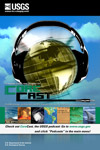USGS CoreCast
It's natural science from the inside out.
USGS Podcasts Home > CoreCast Home Page
Can't see Flash? Install Flash Player.
Next page
|
67
|
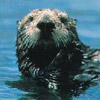
The last week in September is known as Sea Otter Awareness Week throughout California. To bring more attention to the issues surrounding the sea otter and its ongoing recovery from near extinction, we interviewed Tim Tinker, USGS lead sea-otter researcher. Video also provided in the Transcript/Links section. (8:20) | Transcript/Links | |
|
66
|

The last week in September is known as Sea Otter Awareness Week throughout California. To bring more attention to the issues surrounding the sea otter and its ongoing recovery from near extinction, we interviewed Tim Tinker, USGS lead sea-otter researcher. Video also provided in the Transcript/Links section. (5:32) | Transcript/Links | |
|
65
|

The last week in September is known as Sea Otter Awareness Week throughout California. To bring more attention to the issues surrounding the sea otter and its ongoing recovery from near extinction, we interviewed Tim Tinker, USGS lead sea-otter researcher. Video also provided in the Transcript/Links section. (7:14) | Transcript/Links | |
|
64
|
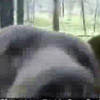
The size and distribution of grizzly bear populations in northwest Montana has just been released by the USGS, so research biologist Kate Kendall bring us up to speed on the findings. Play Video: (downloading may take some time due to file sizes) (7:27) | Transcript/Links | |
|
61
|
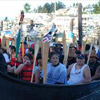
The USGS and the Coast Salish Tribal Nation have partnered during the annual Tribal Canoe Journey to study and help improve resources of the Salish Sea. This final episode in the Corecast Tribal Journey gives an overview of the journey, including a look at preliminary results and additional short video clips and commentary as they paddle through the San Juan Islands and British Columbia (in the Transcript section). Play Video: (downloading may take some time due to file sizes) (6:41) | Transcript/Links | |
|
54
|
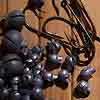
Millions of pounds of lead used in hunting, fishing, and shooting sports wind up in the environment each year and can threaten or kill wildlife, according to a new scientific report. Sarah Gerould, head of the USGS's Contaminant Biology Program, talks with Dr. Barnett Ratter, a USGS scientist at the Patuxent Wildlife Research Center and a co-author of the new report, about the ways lead is affecting wildlife and their habitats. This episode includes images and video. Play Video: (downloading may take some time due to file sizes) (11:25) | Transcript/Links | |
|
52
|

Water quality in the Salish Sea will be measured during the Coast Salish annual summer canoe voyage, the Tribal Journey. This project will blend traditional knowledge of the Coast Salish People with USGS science in an effort to help improve management of ancestral waters experiencing environmental decline. (7:01) | Transcript/Links | |
|
48
|
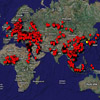
Want to stay on top of wildlife disease developments throughout the world? USGS scientists Josh Dein and Hon Ip, and USGS web content manager Cris Marsh tell us how with some great Web tracking tools. (12:51) | Transcript/Links | |
|
46
|
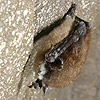
Thousands of bats in the Northeast are dying from white-nosed syndrome. Paul Cryan, Research Biologist, and Kimberli Miller, Wildlife Disease Specialist, talk about the disease and what's being done to address it. (13:56) | Transcript/Links | |
|
37
|
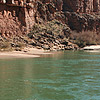
In this video podcast, USGS experts give preliminary observations on what took place during the high flow experiment. Time lapse videos and photos available. Play Video: (downloading may take some time due to file sizes) (8:23) | Transcript/Links | |
Next page

